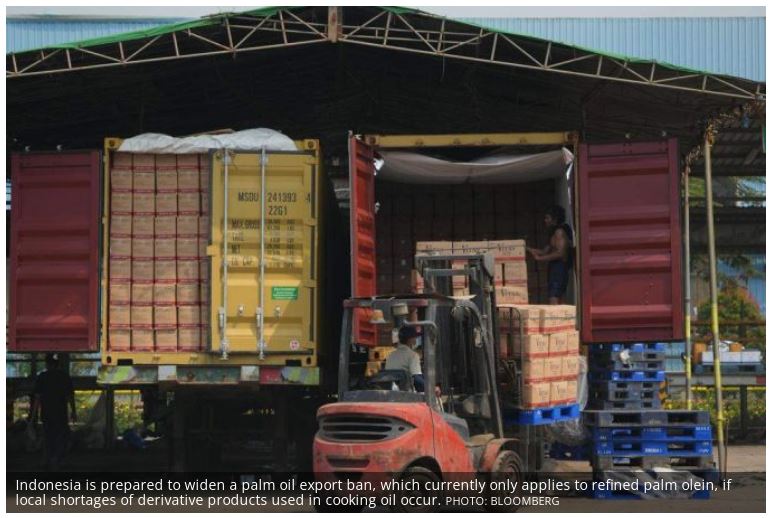Indonesia may widen palm oil export ban if local demand not met
INDONESIA is prepared to widen a palm oil export ban, which currently only applies to refined palm olein, if local shortages of derivative products used in cooking oil occur, according to details of an official meeting with companies.
The world’s biggest palm oil exporter plans from Thursday to stop shipments of refined, bleached and deodorised (RBD) palm olein but will allow exports of crude palm oil or other derivative products, senior government official Musdhalifah Machmud said on Tuesday.
However, authorities will strictly monitor domestic supply of refined palm oil and crude palm oil, which are used as raw materials to make RBD olein, according to details in a government presentation which was verified by Machmud.
“If there is shortage of refined palm oil, then further export bans can be carried out,” read one slide, which was presented to palm oil companies on Monday.
President Joko Widodo announced the export ban on exports of cooking oil and its raw material on Friday in an effort to control soaring local prices, but at the time provided no details.
Indonesia’s announcement has sent global edible oil prices soaring as supplies were already choked by adverse weather and Russia’s invasion of major crop producer Ukraine.
Markets had previously thought the ban would cover a wider range of palm oil products.
“In our view, these restrictions are likely to be temporary, given that domestic demand makes a third of production and once inventories are built up and prices stabilise, restrictions are likely to be lifted,” DBS Bank said in a note.
The rupiah rebounded 0.4 per cent on Tuesday morning, after recording a 0.7 per cent drop a day earlier partly on worries that the ban would hurt Indonesia’s trade performance, while shares of local palm companies were slightly up.
Malaysian benchmark crude palm futures, which had reversed its gains after details of the ban emerged on Monday, rose 2.8 per cent at 0335 GMT on Tuesday. REUTERS


 English
English




